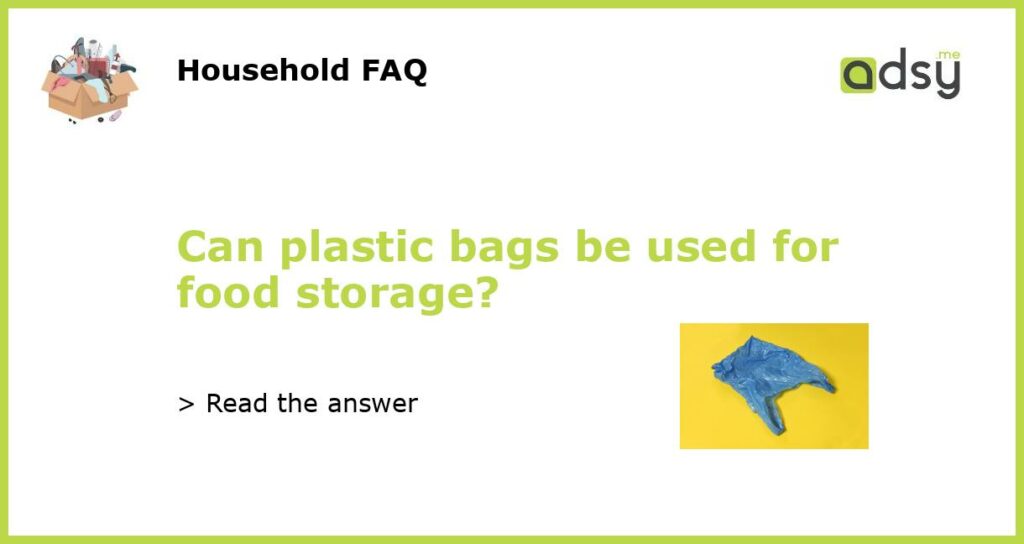What are plastic bags?
Plastic bags are thin, flexible bags made from petroleum-derived materials often used as a container for packaging and carrying goods.
Why use plastic bags for food storage?
Plastic bags are commonly used for food storage due to their affordability, convenience, and durability. They are often used for packing sandwiches, snacks, and other items that can be consumed later. Plastic bags are also easy to clean and maintain, making them ideal for food storage.
Are plastic bags safe for storing food?
While plastic bags are a popular choice for food storage, they are not necessarily the safest option. Plastic bags can potentially leach chemicals like phthalates and bisphenol A (BPA) into food, especially when food is warmed in plastic bags or when it comes into contact with greasy or fatty foods. These chemicals have been linked to health concerns, including hormone disruption and reproductive issues.
What are the alternatives to plastic bags for food storage?
There are several alternatives to plastic bags for food storage, including reusable containers made of glass, stainless steel, or silicone. These containers are free of harmful chemicals and can be easily cleaned and reused. Beeswax wraps made from cotton fabric coated with beeswax can also be used to wrap food items like cheese and fruits. Paper bags and resealable silicone bags can also be used for storing food items.
While plastic bags are a convenient and affordable option for food storage, they are not necessarily the safest choice. Using reusable containers and beeswax wraps are better alternatives for storing food, as they are free from harmful chemicals and can be reused multiple times. Switching to these alternatives can help reduce plastic waste and protect our health and the environment.






